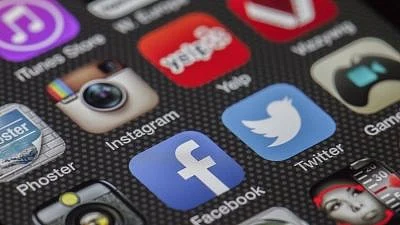In a bid to curb the spread of misinformation from social media and personal messaging platforms, the Ministry of Electronics & IT has issued an urgent advisory to all social media platforms, directing them to “take immediate action to disable/remove such content”.
The Union Health Ministry on Monday said that the total number of positive cases in India had risen to 415. The total number of coronavirus cases across the globe stands at at least 3,00,097 according to AFP.
Issued on 20 March, the advisory identifies all social media platforms as “intermediaries” as defined under the IT Act and must inform users to “not host, display, modify, publish, transmit, update or share any information that may affect public order.”
To this effect, the ministry has issued three specific instructions:
- Initiate awareness campaigns on platforms. Direct users to not upload or circulate unverified news or misinformation related to coronavirus.
- Take immediate action to remove such content on priority basis
- Promote the dissemination of authentic information.
In the wake of the spread of COVID-19, social media platforms have undertaken a host of initiatives to counter the proliferation of misinformation.
1. Facebook
The social networking site listed a three-point approach to counter fake news:
Limiting Misinformation and Harmful Content: The California-based company is also prohibiting people from making health or medical claims related to the coronavirus in product listings on commerce surfaces.
Providing Helpful Information and Support: In India, if people search for ‘coronavirus’ or any related keyword, they will see a post (as in the image below) suggesting that they can find more information about coronavirus on the WHO's website. By clicking on the post, users will be directed to WHO's page. This is available in regional languages as well.
Empowering Partners with Data Tools: “To support fact-checkers in their work around COVID-19, we’re partnering with The International Fact-Checking Network (IFCN) to launch a $1 million grant program to increase their capacity during this time,” Facebook has announced.
2. Twitter
Twitter in its blog post says that the organisation is dedicated to “promoting constructive engagement, and to highlight credible information on this emerging issue.” While they claim no significant coordinated attempts to spread disinformation at scale have been noticed on the platform, dedicated search prompts have been launched by the platform to help users access credible data.
The Quint reached out to Twitter officials who informed us that in India, Twitter has launched a dedicated search prompt with the Ministry of Health & Family Welfare and WHO to ensure when an individual searches a hashtag they're immediately met with authoritative health information from the right sources up top.
3. WhatsApp
The Ministry of Health and MyGov, along with WhatsApp, have launched a helpline number to raise awareness and answer questions about the COVID-19 pandemic.
WhatsApp users across the country can reach out to the Ministry of Health on +91 9013151515 for credible information and to verify any uncertain information on precautionary measures or treatment practices.
Amid the coronavirus outbreak, World Health Organisation (WHO) has partnered with WhatsApp to provide real-time health information to users across the globe. The move comes in light of a massive amount of misinformation around the pandemic having been shared on various social media platforms.
WHO, United Nations Development Program (UNDP) and United Nations International Children’s Emergency Fund (UNICEF) have launched the WhatsApp Coronavirus Information Hub in partnership with the tech giant.
(At The Quint, we question everything. Play an active role in shaping our journalism by becoming a member today.)
